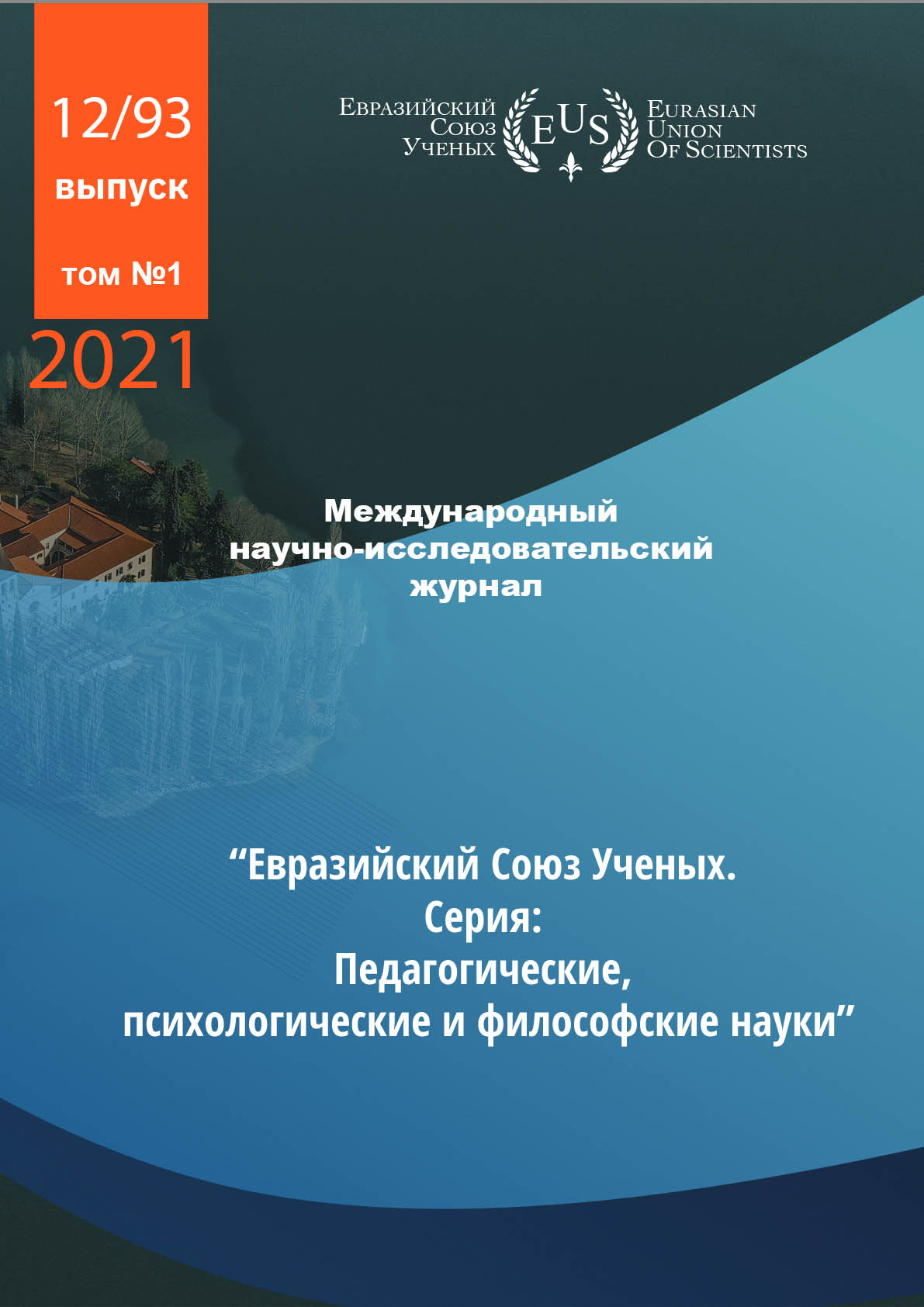EDUCATIONAL ENVIRONMENT AS A PSYCHOLOGICAL AND PEDAGOGICAL FACTOR OF SOCIAL ACTIVITY OF STUDENTS AT THE LEVEL OF BASIC AND SECONDARY GENERAL EDUCATION
Abstract
In the work, the social activity of students at the level of basic and secondary general education is considered as an approach that allows developing the skills of students necessary for effective social interaction and unlocking the potential of students in the process of socio-economic development of society in the most acceptable way. It is assumed that the most significant factors of social activity of students are psychological and pedagogical factors, the main of which are the characteristics of the educational environment. The characteristics of the educational environment as psychological and pedagogical factors of various forms of social activity of students are empirically analyzed. Based on the severity and significance of certain characteristics of the educational environment and the form of activity most characteristic of this educational environment, 8 types of educational environments are identified: "closed and rigid type of educational environment", "narrow type of educational environment", "developing type of educational environment", "weak type of educational environment", "environment with an alternative type of socialization", "innovative type of educational environment", "dominant type of educational environment", "dependent type of educational environment".
References
2. Kutumov A. S. Sovremennyj podhod k izucheniju molodezhi i ee roli v social'nojekonomicheskom razvitii strany // Vestnik BGU. 2015. №2-2. S. 7-11;
3. Borisova T. S. Social'nyj potencial molodjozhi: k voprosu opredelenija definicii // Simvol nauki. 2016. №2-1. S. 69-71;
4. Rijekkinen M. A. Uchastie nesovershennoletnih v obshhestvenno-politicheskoj zhizni s pozicij mezhdunarodnogo i rossijskogo prava // Obshhestvo: politika, jekonomika, pravo. 2017. №12. S. 1-5;
5. Shamionov R. M. Social'naja aktivnost' molodezhi: sistemno-diahronicheskij podhod // Rossijskij psihologicheskij zhurnal. 2019. №1. S. 166-188;
6.Stradze A. Je. Social'naja aktivnost' v rossijskom obshhestve: strukturno-dejatel'nostnoe izmerenie: avtoreferat dis. ... d-ra sociologicheskih nauk: 22.00.04. Rostov-na-Donu. 2013. 58 s.;
7. Shamionov R. M. Social'naja aktivnost' lichnosti i gruppy: opredelenie, struktura i mehanizmy // Vestnik RUDN. Serija: Psihologija i pedagogika. 2018. №4. S. 379-394;
8. Klenova M. A. Problemy i perspektivy issledovanija social'noj aktivnosti molodezhi // Izv. Sarat. un-ta Nov. ser. Serija: Akmeologija obrazovanija. Psihologija razvitija. 2018. №4. S. 319-325;
9. Kirshner B. Introduction: Youth Activism as a Context for Learning and Development // American Behavioral Scientist. 2007. №51(3). pp. 367–379;
10. Sitarov V. A., Maralov V. G. Social'naja aktivnost' lichnosti (urovni, kriterii, tipy i puti ee razvitija) // Znanie. Ponimanie. Umenie. 2015. №4. S. 164-176;
11. Sokolova E. S. Social'naja aktivnost' sovremennoj rossijskoj molodezhi // Znanie. Ponimanie. Umenie. 2011. №1. S. 197-202;
12. Ponomarev Ja. A. Znanija, myshlenie i umstvennoe razvitie. M.: Prosveshhenie. 1967. 264 s.;
13. Jel'konin D. B. K probleme periodizacii psihicheskogo razvitija v detskom vozraste // Vopr. psihol. 1971. № 4. S. 6-20;
14. Shamionov R. M. Sootnoshenija social'noj aktivnosti i udovletvorennosti bazovyh psihologicheskih potrebnostej, sub#ektivnogo blagopoluchija i social'noj frustrirovannosti molodezhi // Sibirskij psihologicheskij zhurnal. 2020. №77. S. 176-195;
15. Jasvin V. A. Obrazovatel'naja sreda: ot modelirovanija k proektirovaniju. M.: Smysl, 2001. 365 s.
CC BY-ND
A work licensed in this way allows the following:
1. The freedom to use and perform the work: The licensee must be allowed to make any use, private or public, of the work.
2. The freedom to study the work and apply the information: The licensee must be allowed to examine the work and to use the knowledge gained from the work in any way. The license may not, for example, restrict "reverse engineering."
2. The freedom to redistribute copies: Copies may be sold, swapped or given away for free, in the same form as the original.





